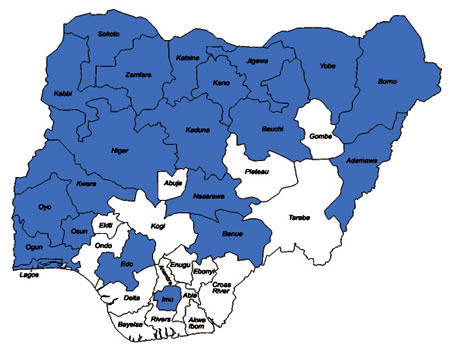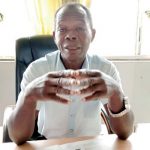Today marks 50 years after the three-year Nigerian civil war came to an end, with the mantra of no winner and no loser, coupled with a proclamation of the three-pronged agenda. KUNLE ODEREMI writes on the impact of post-war initiatives.
The scars are still evident and pronounced five decades after the Nigerian civil war. Beyond the physical damage is the psyche of the defeated and vanquished among the Igbo of extraction from the Eastern Region. Fifty years after the collapse of the Republic of Biafra proclaimed by the late warlord, Chief Odumegwu Ojukwu, the ugly experience and the notion of a Biafran State still resonate among the Igbo.
Though the account of individuals of the genesis vary among the key combatants, living or dead, the fatality put at more than three million lives, constitutes a common denominator. Two dates are germane in the war: July 15, 1966 and July 29 of the same year, when separate military coups, seven years after Nigeria gained independence from Britain, claimed the lives of major political actors and top military brass. A counter-coup on July 29, 1966 exasperated the situation, with claims and counter-claims also of genocide/pogrom that led to the gradual buildup to the civil war.
The true account of the war is mired in controversy. Key actors in the war have so far given different versions about the issues and role of certain prominent citizens in the conflict. A major combatant in the conflict, former President Olusegun Obasanjo once narrated how a committee set up by the then Head of State, General Yakubu Gowon, refused to write the Nigerian civil war history. ”When we had our civil war, General Gowon established a committee to write the official history of the Nigerian civil war. After about four-five years, the committee would not agree to write an official history, and up till today, we have no official history of the war,” Mr Obasanjo said.
Addressing what he considered as another “inaccurate account by Alexander Madiebo, the late Brigadier Joe Garba, also cast doubts on the claims of the dramatis personae. The Plateau State-Born infantry soldier sated: “One man’s hero is another man’s murderer, especially where events force a choice between sides defined as irrecoverable? It has been this the world over, through all history.” The genesis of the conflict is generally linked to the first coup in 1966 that claimed the lives of prominent officers and a school of thought believe the country would have been saved from the catastrophic civil war. Though both Joe Garba and Madiebo agreed on that score, they differed on the way and manner the killings were carried out. But Frederick Forsyth, the author of The Making of An African Legend, writes that it is an alibi to claim ethnic cleansing in the first coup to justify the revenge coup, as contrary to the belief in certain quarters, there was a “move against a premier’s house in Enugu by a Garrison stationed in the capital of the Eastern region.
With the outbreak of hostility in May 1967, other options became imperative as the battle began on the field after the first gun shot fired at the Biafran territory. The quest for a peaceful resolution came much later through the effort of the Ghanaian military Chief that convened the Aburi meeting of leaders from the federal government and the Biafra. While General Yakubu Gowon led the former, Ojukwu was the head of the Biafran delegation to the talks which came up with the Aburi Accord, despite sharp disagreements on a number of issues.
The intelligentsia formed the bulwark of the Biafra think-thank and virtually all of them were drawn from the University of Nsukka. In a matter of days, Nsukka became the ground to launch military operations and offensive against federal troops but was shortly curtailed by federal forces. This was when the varsity fell, the Biafran headquarters moved to Umudike. And for that period, according to the renowned author, Professor Chukwuemeka Ike, the UNN was turned into a university on wheels. Strategic agencies like the Directorates of propaganda, petroleum management board, research and production, directorate of military intelligence, research and production unit, committee on the setting up of refinery, land army and Biafra for programme. Biafra soon received recognition from Ivory Coast, Gabon, Tanzania and Zambia. Tanzania brought in arms and ammunition from France that were ferried to the Biafra. Before then, the potency the Biafran Republic was the directorate of military intelligence, whose activities were complemented by a team of scientist’s that had by 1968 began to manufacture local arms called Ogbunigwe (mass destruction land mine and the flying Ogbunigwe, a rocket modification of the mine; rocket launchers, dane guns. They copied weapons made in Spain, Haiti, and others. Of course, both sides hired mercenaries to prosecute the war, even though the federal authorities refused to label such foreign fighters on the side of federal troops as such. British, Czecks, Egyptians fought on its side.
Mercenaries
The involvement of mercenaries became inevitable because of the loss a huge number of top officers in the January 15 1966 coup and the counter-coup of July 29, 1966. Besides the appointment of a cadre of top officers as military governors and ambassadors meant captains and sub-lieutenants became commanders of command battalions, while non-commission officers were hurriedly commissioned and recruited young graduates and deployed to acquire military training on the battlefields. Freelance Italian mercenaries and volunteers complemented the efforts of American and German pilots on the side of Biafra. However, France, Portugal, Sweden, majority of Western Europe and the United States, Canada and China officially played hide and seek at the initial stage, including Soviet Union.
Both federal and Biafran sides fully deployed the machinery of propaganda that tilted global perception and tilt, particularly on issues of alleged genocide and starvation, as well as religion until international observer teams from United Nations, OAU, Canada, Britain and Poland. Foreign observers were later allowed to inspect the war scenes, but the foreign support for either side involved in the war was based on self-interest. For instance, the Commonwealth and foreign secretary of the British labour government then, George Thompson, had declared, “If we cut off arms supply, the Russians will only be too willing to fill the gap and gain the influence we would lose.”
The period of the war also became an opportunity for retaliation by the French government against Nigeria for expelling the envoy of that country when it tested an atomic bomb in the Sahara Desert. The Pope equally joined the fray because of alleged prosecution against people of a particular faith. Almost all the neighbouring countries of Nigeria became enemies forcing the Nigerian government to embark on shuttle diplomacy to those countries to reach non-aggression agreements with them.
The Ihiala Declaration
The Ihiala declaration was drafted by Professor Chinua Achebe who said the content was a product of consensus among the committee that handled the assignment. He said: “We were contemplating a new society, just, accountable to the people rather than leaders… Biafra made use of its brains and resources. We were able to find petrol during the war.” It was the Biafra’s cry and code of a Code of ethnic for Biafra. Based on the declaration, Ojukwu had warned against imitation of the Nigerian “life of ostentation.” Achebe said the war became inevitable because of the prevailing circumstances then, especially because seemed to have collapsed irretrievably. “Yes, Biafran had a cause. That’s very simple. Biafran was the result of events. The people felt they were no longer wanted.” And sadly, the people had to pay huge price and make enormous sacrifices as the gun boomed on the battlefiel. Adults had to stockpile supplies of salt, pepper, garri, oil, kerosine, and other necessities. Children and mothers developed swollen feet and bellies with limbs becoming the size of a broom because of kwasiokor resulting from malnourishment. Maternal and infant mortalities hit the rooftops. Professor Anya o Anya, who was initially in charge of the food directorate before he was made the assistant director of publicity in the projective planning unit recalled that, “Some people actually ate the flesh of dead soldiers, including their own (Biafran soldiers) who fell in the front.” Others are tree bark, lizards, insects or any crawling or flying things, drinking muddy water, and eating mud to survive.
The Aburi Accord
This is how Chinua Achebe explained the process that led to the Aburi accord held from January 4 to 5,in 1967, adding that Aburi in Ghana was the choice as a concession to Ojukwu., who insisted on a neutral ground. The gathering was attended by senior military and police officials and government secretaries. And the agenda comprised a committee to work out a constitutional future for Nigeria; the back payment of the salaries to Igbo government employees who were forced to leave their posts as a result of the disturbances; the need for a resolution renouncing the use of force; and the refusal of the eastern region to recognize Lieutenant Colonel Yakubu Gowon as supreme commander. Others included the predicaments of the displaced persons following the pogroms in the north, the fate of soldiers involved in disturbances on January 15, 1966, and the planned distribution of power between the federal military government and the regional governments. But by March 1967, that is two months after the meeting, the resolutions hanged in the balance. Following threats by Ojukwu to proclaim a sovereign state, the federal government promulgated decree 8, of 1967 towards revival of a proposal for constitutional reforms which led to further political intrigues, which aborted the accord implementation. As Ojukwu had become desperate, the federal government set up a high-powered national reconciliation commission to meet with Igbo leaders to avert the looming war. According to Achebe, “The first part of May 1967 saw the visit of the National Reconciliation Commission (NRC) to Enugu, the capital of the eastern region. it was led by chief (Obafemi) Awolowo and billed as a last-minute effort at peace and as an attempt to encourage Ojukwu and eastern leaders to attend peace talks at a venue suitable to the easterners. Despite providing a friendly reception, many Igbo leaders referred to the visit disdainfully as the ‘chop, chop, talk, talk, commission. So, on May 26, 1967, Ojukwu summoned an emergency meeting of the special advisory committee of chiefs and elders in Enugu. So, it stated in their resolution that, “On May 27, the consultative assembly mandated Colonel Ojukwu to declare, at the earliest practicable time, Eastern Nigeria a free sovereign and independent state by the name and title of the republic of Biafra.”
Years after the war, Ojukwu gave an inkling into what he felt about the country. He analysed the challenges of Nigeria on perceived pervasive fear in the land. He said: “Nigeria is crippled by four fears: fear of change; fear of truth; fear of unity and fear of ma. The first explains our fixation upon all that is anachronistic. The Second explains our inability to accommodate criticism both at home and from abroad. The Third explains why we circumscribe anybody who prescribes true unity as a possible solution to our woes and even to war to present unity. The fourth is perhaps the most insidious.”





